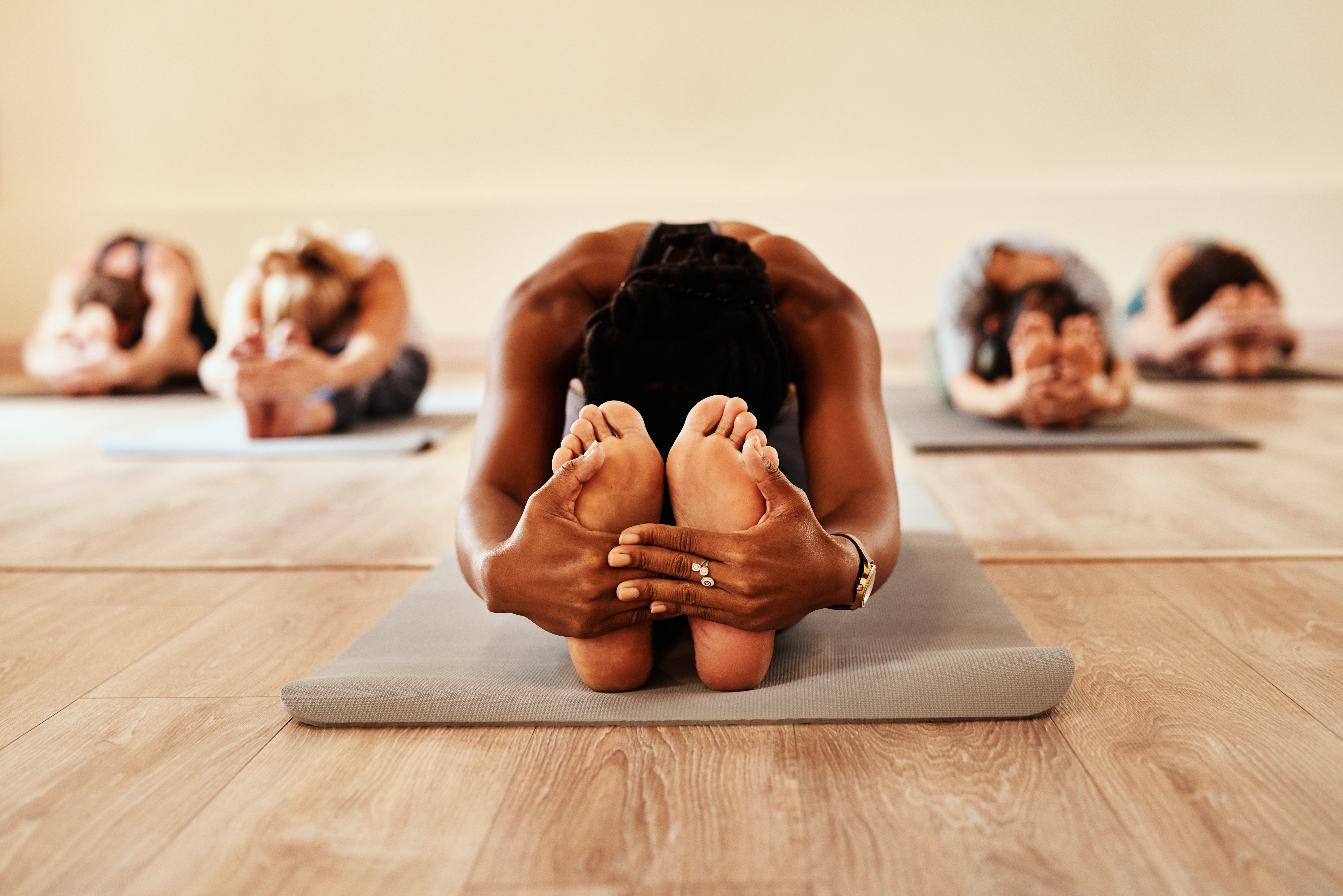Hormone Harmony: Natural Methods to Balance Your Body and Boost Wellness
Hormones are your body’s behind-the-scenes power players—regulating everything from mood and metabolism to sleep, skin, and sex drive. But when they fall out of sync, the ripple effects can feel overwhelming: stubborn weight gain, energy crashes, brain fog, irritability, and more. The culprit? Often it’s a modern cocktail of chronic stress, nutrient-poor diets, poor sleep, and hidden toxins. The good news? You don’t need a prescription to start reclaiming balance. We’ve expanded our guide to 21 powerful strategies to restore hormonal harmony and boost vitality, all rooted in simple, sustainable lifestyle and dietary shifts. These aren’t fads—they’re science-backed habits that address the root causes, helping you recalibrate your system naturally. Whether you’re battling burnout, struggling with sleep, or just want to feel more like yourself again, these tools can help you reset from the inside out. Because when your hormones are in harmony, everything else follows. Let’s get you back in rhythm.
1. The Role of Diet in Hormonal Health

Diet plays a pivotal role in maintaining hormonal balance. Consuming a variety of whole foods, rich in essential nutrients, supports the body's ability to produce and regulate hormones. Omega-3 fatty acids, found in fish and flaxseeds, are known to reduce inflammation and support brain health, which is crucial for hormonal balance. Additionally, incorporating plenty of fruits and vegetables provides antioxidants that protect against oxidative stress, a known disruptor of hormonal harmony. By prioritizing a balanced diet, one can significantly influence hormonal health and overall vitality.
2. The Power of Adaptogens

Adaptogens are a unique class of herbs that help the body resist stressors of all kinds, whether physical, chemical, or biological. These powerful plants, including ashwagandha, rhodiola, and holy basil, have been used for centuries in traditional medicine to promote balance and resilience. Adaptogens work by supporting the adrenal glands, which produce stress-related hormones like cortisol. By modulating the stress response, adaptogens can help restore balance to the endocrine system, reducing symptoms of hormonal imbalance and boosting energy levels naturally.
3. Exercise and Hormonal Balance

Regular physical activity is a cornerstone of hormonal health. Exercise helps to regulate insulin levels, increase endorphins, and reduce cortisol, the stress hormone. Activities like yoga and tai chi not only improve physical fitness but also promote relaxation and stress reduction, further supporting hormonal balance. Strength training, on the other hand, increases muscle mass and boosts metabolism, which can enhance the body's ability to regulate hormones. By incorporating a variety of exercises into your routine, you can naturally support your hormonal health and elevate your vitality.
4. The Impact of Sleep on Hormones

Quality sleep is essential for maintaining hormonal balance. During deep sleep, the body undergoes critical repair processes, and hormones such as growth hormone and melatonin are released. Lack of sleep can lead to elevated cortisol levels, insulin resistance, and imbalances in hunger-regulating hormones like leptin and ghrelin. Prioritizing sleep hygiene—such as maintaining a regular sleep schedule, creating a restful environment, and limiting screen time before bed—can help ensure restorative sleep and support hormonal harmony.
5. Stress Management Techniques

Chronic stress is a major disruptor of hormonal balance. The body's stress response triggers the release of cortisol, which, when elevated for prolonged periods, can lead to a cascade of hormonal imbalances. Incorporating stress management techniques, such as mindfulness meditation, deep breathing exercises, and progressive muscle relaxation, can help mitigate the effects of stress on the body. By reducing stress, these practices support the endocrine system, promoting hormonal balance and enhancing overall well-being.
6. The Benefits of Detoxification

Environmental toxins, such as pesticides, heavy metals, and endocrine disruptors, can interfere with hormonal function. Regular detoxification supports the body's natural elimination processes, helping to remove these harmful substances. Methods such as intermittent fasting, drinking plenty of water, and consuming detoxifying foods like garlic, cilantro, and cruciferous vegetables can aid in this process. By reducing the toxic burden on the body, detoxification can help restore hormonal balance and improve vitality.
7. The Influence of Gut Health

The gut microbiome plays a crucial role in hormone regulation. A healthy gut supports the production of neurotransmitters and hormones, while an imbalanced microbiome can lead to inflammation and hormonal disruptions. Consuming probiotics and prebiotics, found in fermented foods and fiber-rich fruits and vegetables, can promote a healthy gut environment. By nurturing gut health, you can support the endocrine system and enhance your body's natural ability to maintain hormonal balance.
8. Essential Fatty Acids and Hormones

Essential fatty acids, particularly omega-3s, are vital for hormonal health. These fats are necessary for the production of hormone-like substances called eicosanoids, which have anti-inflammatory properties. Omega-3s also play a role in maintaining cell membrane fluidity, which is crucial for hormone receptor function. Including sources of omega-3s, such as fatty fish, walnuts, and chia seeds, in your diet can support hormonal balance and contribute to overall vitality.
9. The Role of Hydration

Adequate hydration is often overlooked but is essential for hormonal health. Water is involved in countless bodily processes, including hormone transport and elimination of waste products. Dehydration can lead to increased cortisol levels and impair the body's ability to regulate hormones. Ensuring sufficient water intake throughout the day supports the body's natural detoxification processes and helps maintain hormonal balance, contributing to improved energy and vitality.
10. The Connection Between Hormones and Mental Health

Hormones have a profound impact on mental health, influencing mood, cognition, and emotional well-being. Imbalances in hormones like serotonin, dopamine, and cortisol can lead to mood disorders such as depression and anxiety. Addressing hormonal imbalances through lifestyle changes, nutrition, and stress management can have a positive effect on mental health. By fostering hormonal harmony, you can enhance your mental resilience and overall quality of life.
11. The Effects of Caffeine and Alcohol

Caffeine and alcohol are common substances that can disrupt hormonal balance. Caffeine stimulates the adrenal glands, leading to increased cortisol production, while alcohol affects the liver's ability to metabolize hormones. Moderation is key; limiting caffeine and alcohol intake can help support the body's natural hormone regulation processes. By making mindful choices about these substances, you can reduce their impact on your hormonal health and elevate your vitality.
12. The Importance of Regular Health Check-Ups

Regular health check-ups are crucial for monitoring hormonal health. Blood tests can provide valuable insights into hormone levels, helping to identify imbalances early on. Working with healthcare professionals to develop a personalized plan can address any issues and support hormonal harmony. By staying proactive about your health, you can ensure that your body's hormonal orchestra remains in tune, promoting long-term vitality and well-being.
13. The Role of Vitamin D in Hormonal Health

Vitamin D, often referred to as the "sunshine vitamin," plays a critical role in hormonal health. It is involved in the regulation of calcium and phosphate, which are essential for maintaining healthy bones and muscles. Vitamin D also influences the production of hormones such as insulin and serotonin. Ensuring adequate sun exposure and considering supplementation can help maintain optimal vitamin D levels, supporting hormonal balance and vitality.
14. The Power of Infrared Sauna Therapy

Infrared sauna therapy is an emerging wellness practice that supports hormonal balance by promoting detoxification, reducing stress, and improving circulation. Unlike traditional saunas, infrared saunas use light waves to penetrate deep into tissues, helping the body eliminate toxins that can disrupt endocrine function. Regular sauna use has been shown to reduce cortisol levels, promote relaxation, and support the production of growth hormone, which aids in metabolism and cellular repair. Additionally, the heat exposure can improve insulin sensitivity, further supporting hormonal health. By incorporating infrared sauna sessions into your routine, you can enhance your body’s natural detox processes and support overall hormonal equilibrium.
15. Cyclical Eating for Hormone Optimization

Cyclical eating, also known as hormone-balancing nutrition, involves tailoring your diet to support your body’s natural hormonal fluctuations throughout the day and month. This approach is particularly beneficial for women, as it aligns with the menstrual cycle’s different phases, ensuring proper intake of nutrients that support estrogen, progesterone, and insulin balance. During the follicular phase, lighter meals rich in leafy greens and lean proteins support estrogen metabolism, while during the luteal phase, nutrient-dense foods like healthy fats and complex carbohydrates help stabilize progesterone levels. Cyclical eating can also involve intermittent fasting variations to support insulin regulation and metabolic health. This personalized approach to nutrition helps align the body's hormonal rhythms with food intake, leading to improved energy, digestion, and mood stability.
16. Grounding (Earthing) for Hormonal Stability

Grounding, or earthing, is the practice of direct skin contact with the earth’s surface—such as walking barefoot on grass, soil, or sand. Emerging research suggests that this simple practice can have profound effects on hormonal balance by reducing stress hormones, improving sleep quality, and enhancing immune function. The earth’s natural electric charge helps regulate the autonomic nervous system, which in turn lowers cortisol and improves melatonin production. By spending time outdoors and engaging in grounding practices daily, you can help reset your body’s natural rhythms and support overall endocrine health.
17. Prioritize Magnesium-Rich Foods for Hormonal Harmony

Magnesium is the unsung hero of hormonal health. This essential mineral supports over 300 enzymatic functions—including the regulation of cortisol, insulin, and estrogen. Low magnesium levels are linked to PMS, sleep disturbances, and heightened stress response. By increasing your intake of magnesium-rich foods like spinach, pumpkin seeds, dark chocolate, and almonds, you can ease hormonal symptoms and improve energy, mood, and sleep. It’s especially vital for women managing menstrual cycles or menopause. Since stress and caffeine can deplete magnesium, replenishing it through food or supplements helps buffer the body against hormonal chaos and keeps your internal systems humming.
18. Embrace Blue-Light Hygiene for Melatonin Support

Your screen habits might be wrecking your hormones. Exposure to blue light from phones, tablets, and TVs after sunset suppresses melatonin—the hormone that regulates your sleep-wake cycle. Poor sleep triggers elevated cortisol and throws off insulin, ghrelin, and leptin levels, disrupting everything from appetite to mood. Combat this by dimming lights post-sunset, wearing blue-light blocking glasses, and setting screen curfews at least 1–2 hours before bed. This simple habit helps your body sync with its natural circadian rhythm, improving not only sleep quality but your entire hormonal symphony. Think of it as tech hygiene for your endocrine system.
19. Support Liver Function for Estrogen Balance

Your liver isn’t just for detox—it’s the metabolic hub that helps break down and eliminate excess hormones, especially estrogen. When liver function is sluggish due to poor diet, alcohol, or stress, hormones can recirculate in the body, leading to symptoms like bloating, mood swings, and acne. Support your liver with foods like cruciferous vegetables (broccoli, Brussels sprouts), turmeric, beets, and lemon water. Avoid processed foods and excessive alcohol, and aim for regular bowel movements to aid elimination. A well-functioning liver is essential for clearing out hormonal excess and keeping your system balanced and resilient.
20. Rebuild Your Hormones with Strategic Rest

Rest isn't just recovery—it's restoration. In today’s hustle culture, chronic fatigue and burnout often stem from insufficient true rest, which disrupts cortisol, thyroid function, and sex hormone production. Beyond sleep, the body needs periods of intentional slowness: deep rest, time in nature, moments of stillness. Incorporating restorative practices like yoga nidra, mindful breaks, or even naps can recalibrate your stress response and gently reset your hormonal balance. The nervous system can’t heal in overdrive. Reframing rest as a non-negotiable pillar of hormonal health is a radical—and necessary—act of self-support.
21. Harness the Mind-Body Connection Through Journaling

Your thoughts influence your hormones more than you think. Studies show that expressive writing—especially when processing emotions—can lower cortisol, improve immune markers, and even reduce symptoms of PMS and menopause. Daily journaling helps reduce mental clutter, release stored stress, and bring awareness to lifestyle triggers affecting your hormonal balance. Try prompts like: “What is my body asking for today?” or “What made me feel out of sync?” This simple practice helps you become an active participant in your own regulation. It's not just cathartic—it’s biochemical. Writing clears space in the mind and recalibrates balance in the body.
Rebalance, Reclaim, Restore

Your hormones don’t just influence your health—they are your health. When they’re in sync, everything flows: your energy, sleep, mood, metabolism, skin, and even your sense of self. But modern life rarely makes balance easy. The good news? You don’t need drastic overhauls or expensive treatments to get back on track. These 21 natural strategies offer something far more powerful: agency. From the foods you eat to the rhythms you follow, every small shift is a signal to your body that it’s safe to heal, stabilize, and thrive. Whether you’re addressing burnout, unexplained symptoms, or simply want to feel grounded again, hormonal harmony is within reach—through rest, nourishment, movement, and intention. Start where you are. Listen closely. The body keeps the score, yes—but it also keeps the wisdom to restore. Because when your hormones are aligned, you don’t just function—you flourish. Balance isn’t a myth. It’s a practice.
